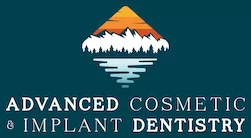 Teeth grinding, or bruxism, is a condition that affects millions worldwide. Whether it happens during the day or at night, bruxism can significantly impact your dental health, overall well-being, and quality of life. Thankfully, 2025 brings innovative strategies and cutting-edge technology to tackle this issue. This guide from Advanced Cosmetic and Implant Dentistry explores what bruxism is, why it’s essential to address it, how to identify the condition, and the solutions available to quit teeth grinding for good.
Teeth grinding, or bruxism, is a condition that affects millions worldwide. Whether it happens during the day or at night, bruxism can significantly impact your dental health, overall well-being, and quality of life. Thankfully, 2025 brings innovative strategies and cutting-edge technology to tackle this issue. This guide from Advanced Cosmetic and Implant Dentistry explores what bruxism is, why it’s essential to address it, how to identify the condition, and the solutions available to quit teeth grinding for good.
What is Bruxism?
Bruxism refers to the involuntary grinding or clenching of teeth, which can occur while awake or asleep. Often unconscious, it’s typically triggered by stress, misaligned teeth, or lifestyle factors like caffeine and alcohol. Identifying the underlying cause is the first step to effective treatment.
Why Bruxism Shouldn’t Be Ignored
Bruxism might seem like a minor issue, but untreated, it can lead to serious health concerns. Dental damage, such as cracked or worn teeth, is common and often expensive to repair. Chronic clenching creates tension that can cause frequent headaches, migraines, and TMJ disorders, resulting in jaw pain and limited movement. Bruxism may also lead to muscle pain in the head, neck, and shoulders, as well as tinnitus or dizziness. Over time, these issues can significantly impact your quality of life. Addressing bruxism isn’t just about protecting your teeth—it’s about safeguarding your overall well-being.
How to Identify Bruxism
Bruxism often goes unnoticed, but certain symptoms can signal a problem. These include jaw soreness or tightness, particularly in the morning, teeth sensitivity, visible damage like flattened edges, and unexplained headaches or earaches. Audible grinding or clenching sounds may also be reported by a partner. A dentist can confirm the diagnosis and recommend solutions tailored to your needs.
Modern Strategies to Quit Teeth Grinding in 2025
- Stress Management
Reducing stress is key to addressing bruxism. Practices like yoga and meditation help relax the mind and body, minimizing nighttime clenching. Short breathing exercises can release tension during the day, while cognitive-behavioral therapy (CBT) can offer long-term relief for chronic stress or anxiety.
- Addressing Dental Issues
Fixing dental problems is another critical step. Custom night guards provide a protective barrier between teeth, preventing damage from grinding. For those with misaligned teeth, orthodontic treatments like braces or Invisalign can help reduce triggers.
- Lifestyle Adjustments
Small lifestyle changes can have a big impact. Cutting back on caffeine and alcohol, especially in the evening, can reduce grinding. Establishing a calming bedtime routine and creating a conducive sleep environment promotes restful sleep. Jaw relaxation practices, such as massage or gentle stretching, can also ease muscle tightness.
- Professional Help
For severe bruxism, professional treatments are highly effective. Modern oral appliances are slimmer and more comfortable, offering superior protection. Specialists like Dr. Daniel McKay can create personalized treatment plans to address the condition comprehensively.
How Technology is Changing Bruxism Treatment in 2025
Technology is revolutionizing bruxism treatment. Smarter night guards with pressure sensors track grinding intensity, giving dentists valuable insights. Wearable tech, like smart headbands or jaw sensors, monitors clenching and provides haptic feedback to encourage muscle relaxation. Apps designed for stress management and jaw relaxation use biofeedback to increase awareness of clenching in real-time.
Protect Your Smile, Protect Your Health
Bruxism is more than just an annoying habit—it’s a condition that impacts your dental health, comfort, and overall well-being. By identifying the causes, monitoring symptoms, and using modern treatment strategies available in 2025, you can finally put an end to teeth grinding.
Don’t wait until the damage worsens. Consult professionals like Dr. Daniel McKay to explore tailored bruxism solutions and start protecting your smile. With innovative tools and technology, quitting bruxism has never been easier. Your smile deserves it—and so does your health.
Contact Advanced Cosmetic & Implant Dentistry:
(206) 381-3055
Location (Tap to open in Google Maps):
901 Boren Ave #1940,
Seattle, WA
98104


